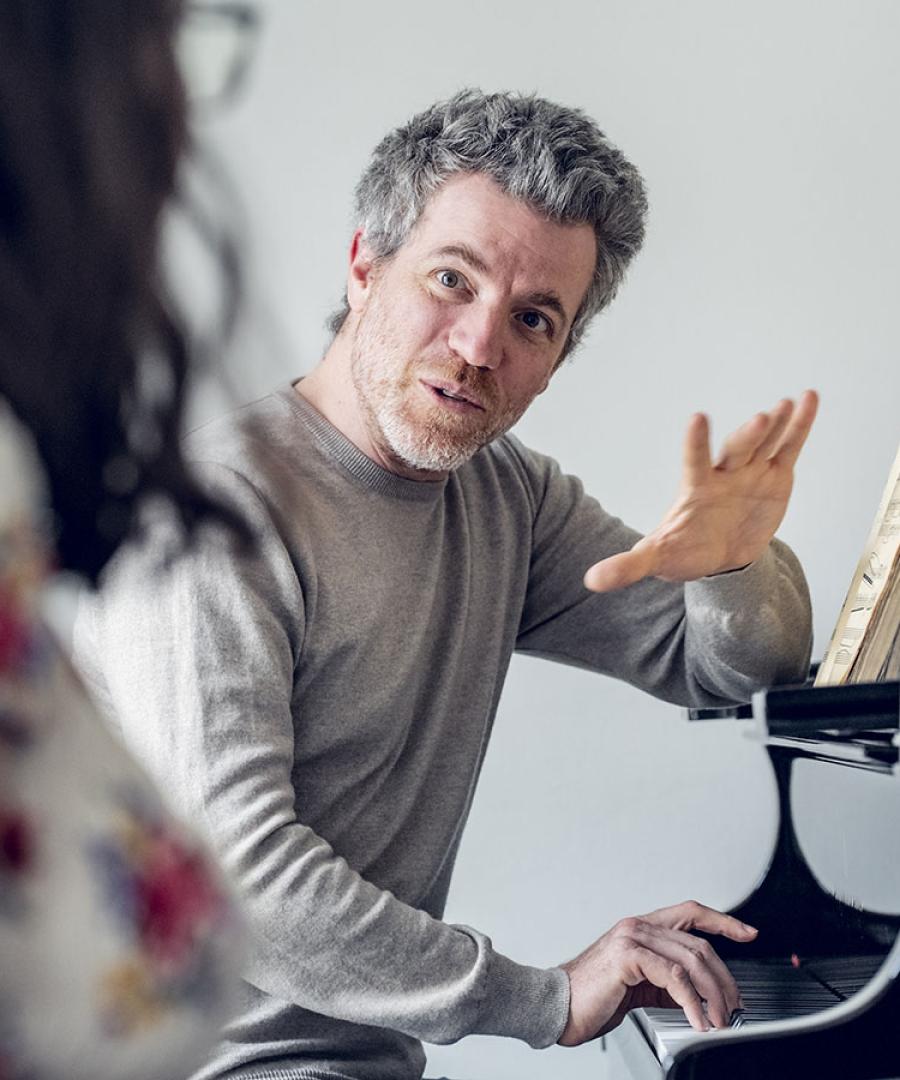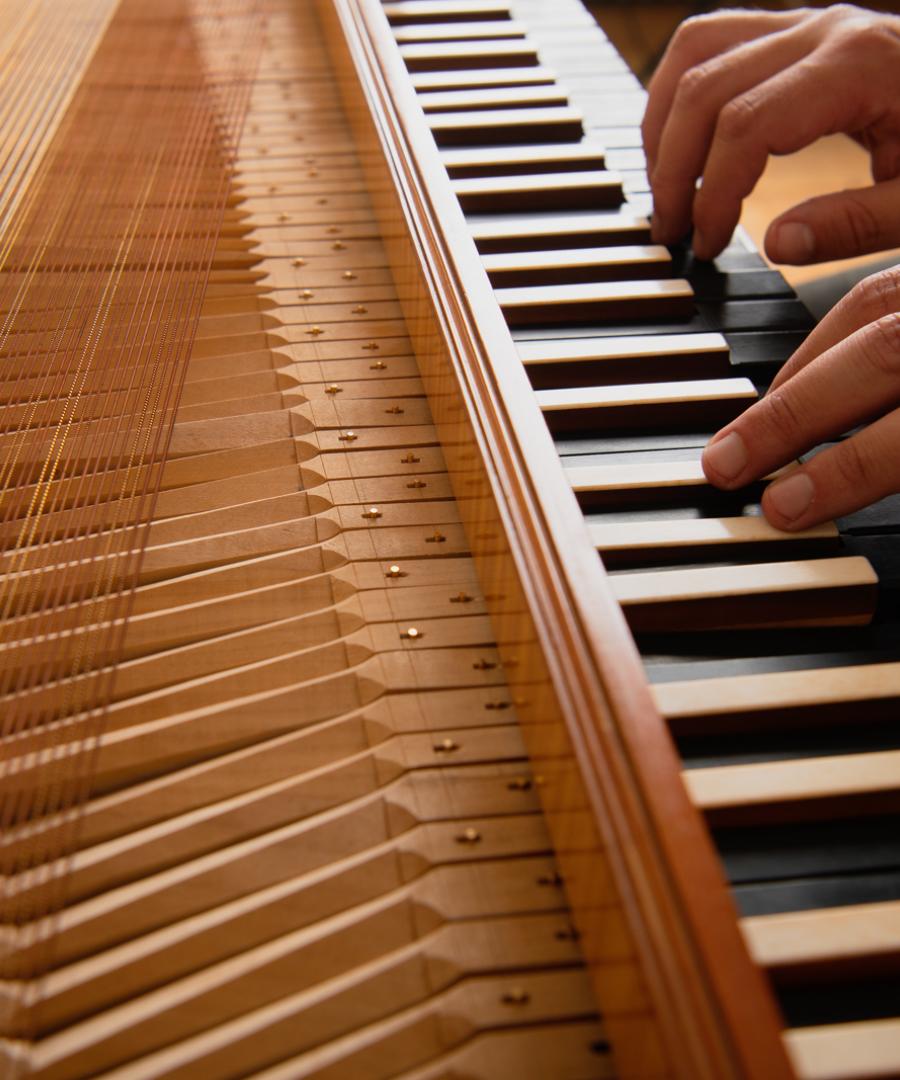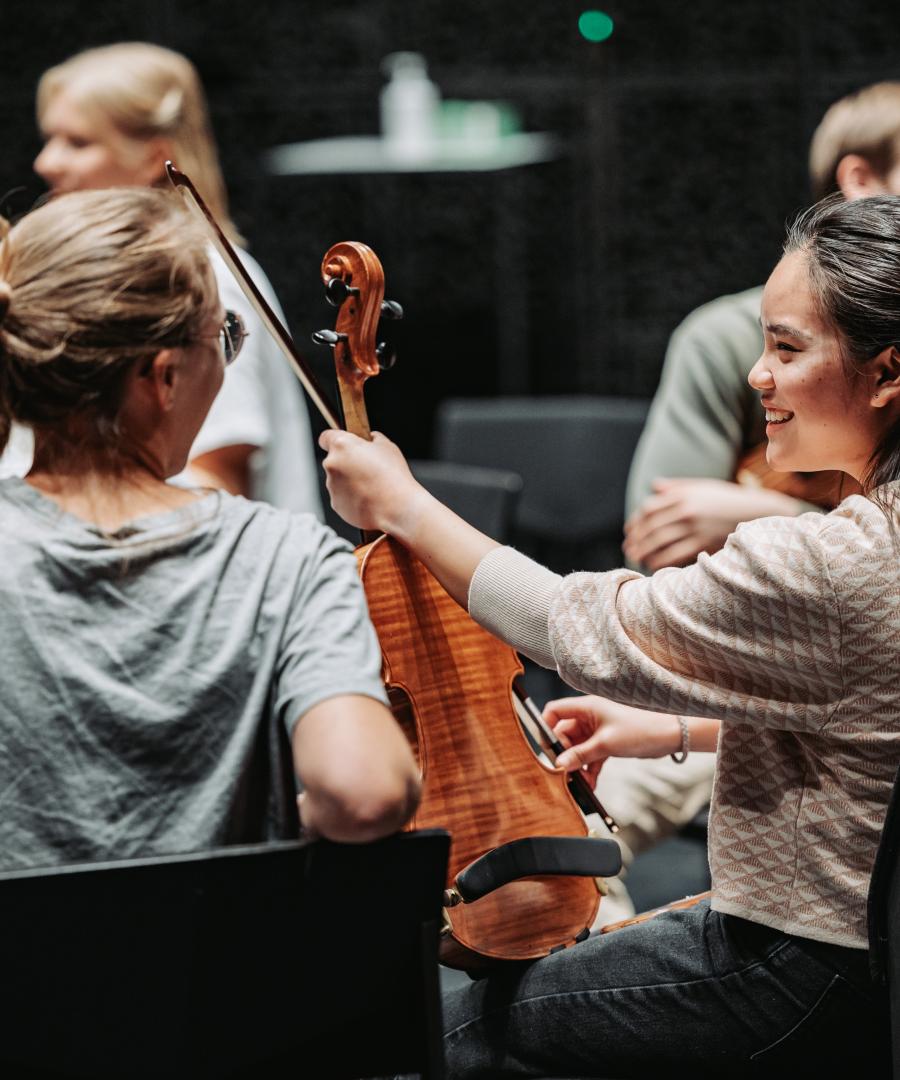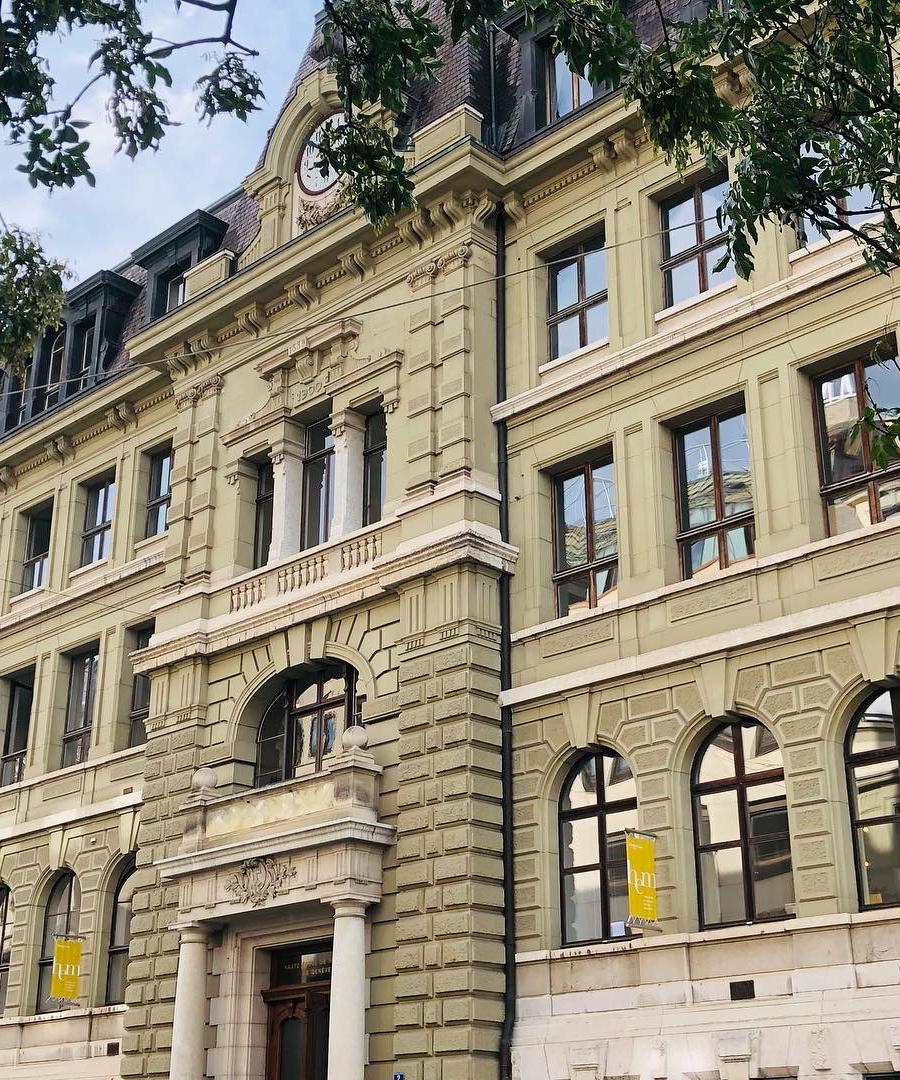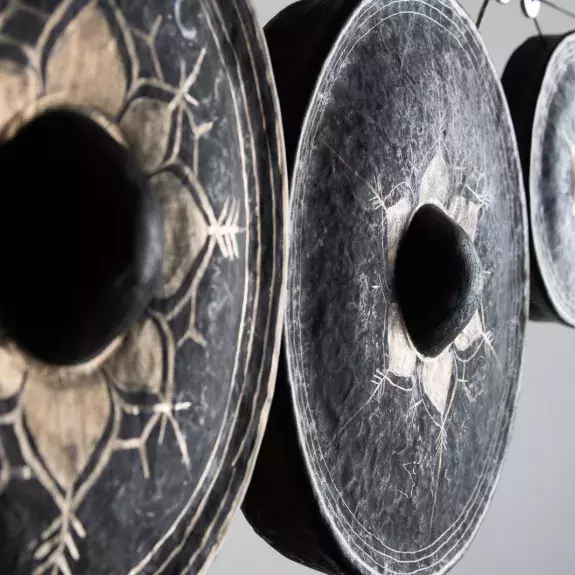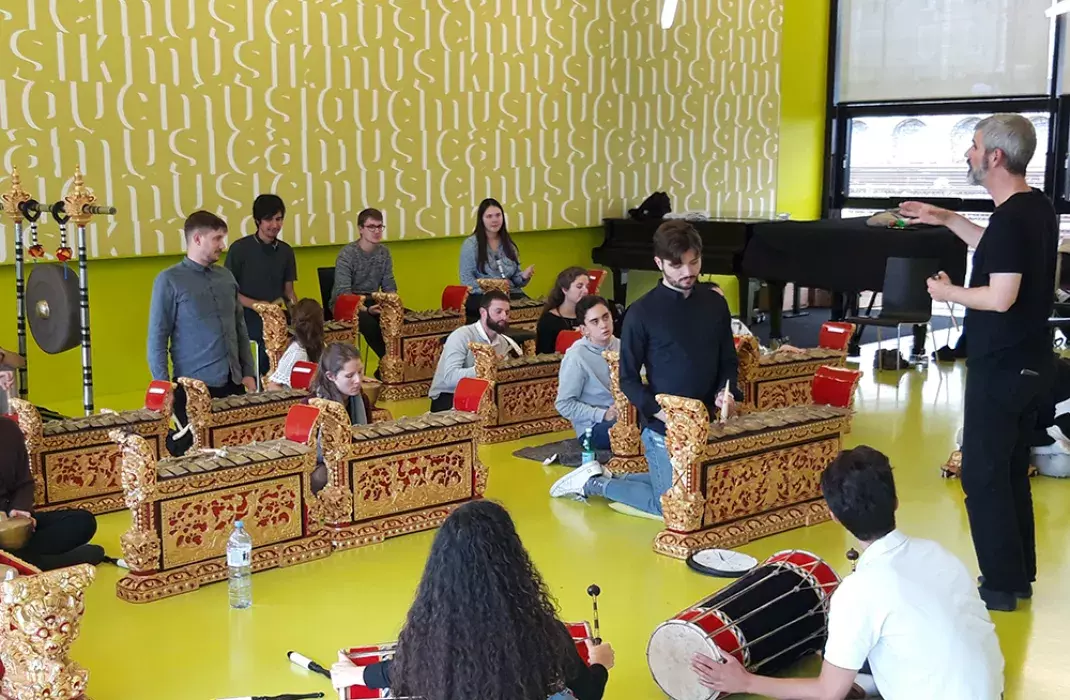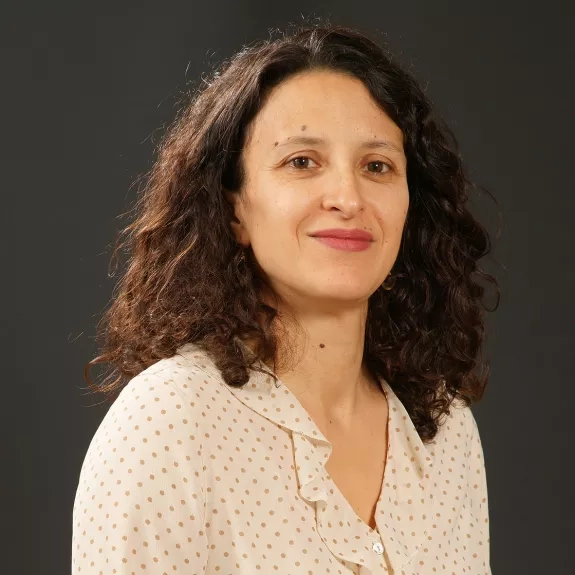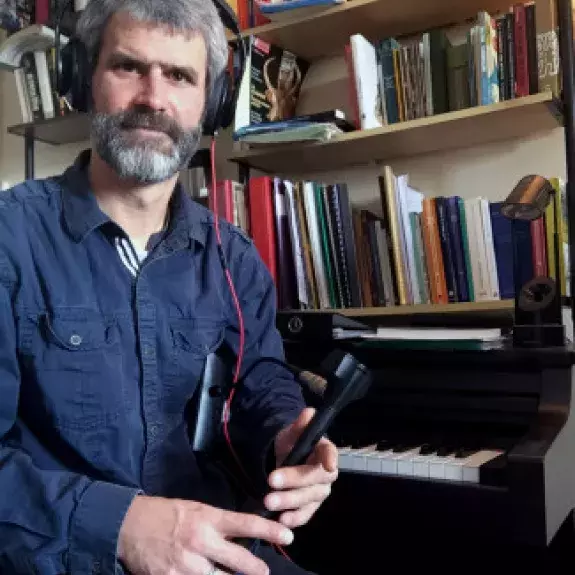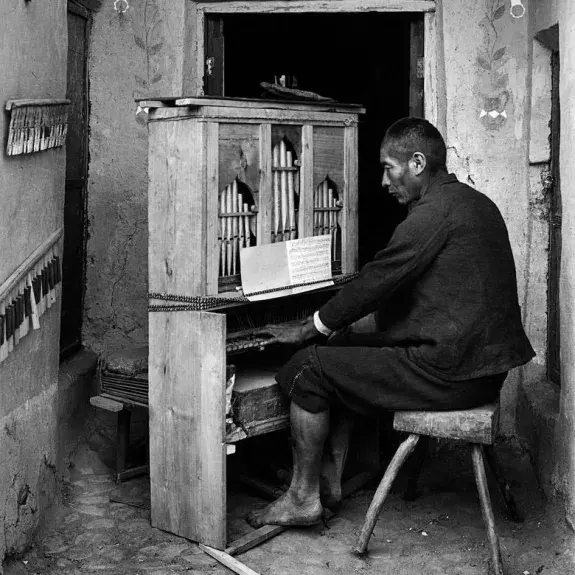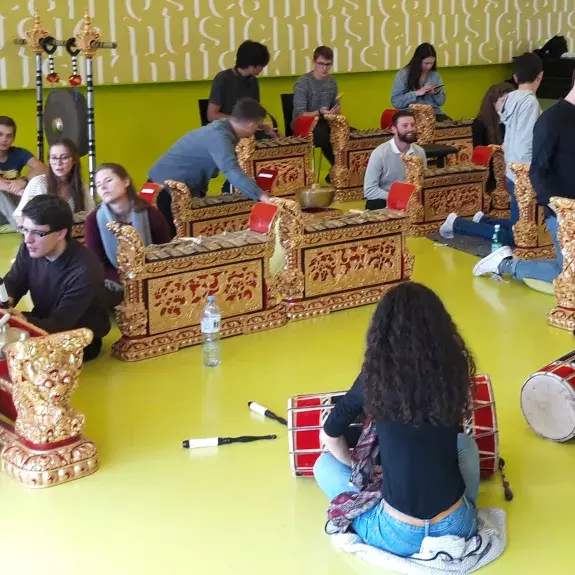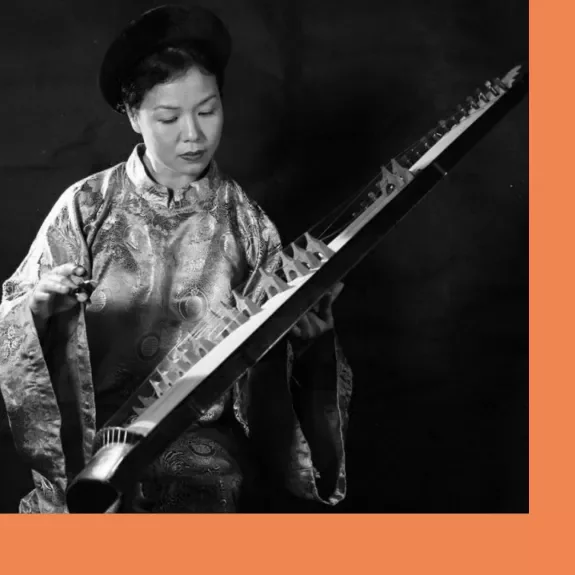- Studies
- Disciplines
- Research
- Events
- The school
Ethnomusicology is a field that aims to promote better understanding of the world through the study of musical practices.
After a century of methodological discoveries and developments, the third millennium is seeing new challenges take shape, an expansion of the field of study and an increase in the potential career openings for ethnomusicologists: the flourishing of the ‘world music’ market, cooperation and cultural diplomacy projects, and the teaching of music from outside Europe - all these things constitute alternatives to the academic world. Deciding to train as an ethnomusicologist means acquiring the means to bring an enlightened form of listening to both European and non-European societies.
Centre for Musical Cultures
The Centre des cultures musicales brings together the activities of the Haute école de musique de Genève (HEM) in the field of music from other cultural realms. A place of teaching, research and mediation, it fits into the long history of Geneva showing interest in traditional forms of music and music from elsewhere, an interest that develops quite specifically at the start of the 20th century, at the time when the League of Nations was founded.
The Centre hosts the teaching of the Master’s degree in Ethnomusicology course, a programme managed jointly with the Universities of Geneva and Neuchâtel.The Centre collaborates closely with two renowned Genevan institutions, the Ateliers d’Ethnomusicologie (ADEM) and the Musée d’ethnographie de Genève (MEG), as well as with non-governmental organisations such as the Aga Khan Music Programme. It houses a Centre culturel de musique chinoise (Chinese Music Culture Centre / 中国音乐文化中心), founded in 2018 in partnership with the Music Conservatoire of Shanghai. Blessed with an instrument collection like no other, including an important Balinese Gamelan, the Centre offers the playing of a diverse range of instruments to students of the HEM.
Oriental Ensemble of the HEM
A group with a large number of musicians, the HEM’s Oriental Ensemble plays a repertoire that ranges from classical Arabic to Turco-Ottoman, Irano-Persian and Central Asian music. It is formed of 25 to 30 students of the HEM playing Western instruments, together with specialists on specific instruments in the cultural realms concerned. Conducted by the musician Basel Rajoub, the Oriental Ensemble perform regularly, and often collaborates with the soloists of the Aga Khan Music Programme.
Silk and bamboo ensemble
Founded in 2015, the HEM’s Silk and Bamboo Ensemble plays the traditional repertoire of the region of Jiangnan, south of the Yangtze river. In addition to the typical repertoire of the Shanghai region, there is the dancing, joyful music of the regions of Guangdong and Chaozhou. The ensemble is formed of students from the HEM playing Chinese instruments from the family of silks (instruments with strings that are plucked or bowed) and bamboos (flutes and mouth organs). The ensemble benefits from the presence of students from the Department of Chinese Instruments at the Shanghai Conservatoire. It performs regularly in Geneva and further afield.
Balinese Gamelan
Among the numerous gamelans (literally ‘orchestras’) present in Indonesia, the gong kebyar gamelan is currently the most widespread orchestral formation on the island of Bali, where it is associated with dance, theatre and various rituals where music plays a predominant role. Composed mainly of metallophone percussion instruments, the gamelan makes it possible to look at issues associated with coordination within an ensemble, polyrhythmia and interactions within the playing, and to reflect on the very notion of the orchestra.
Symposium BSI 2024
From 11 to 13 April 2024, the HEM organises a Symposium in Geneva on the promotion of Chinese culture and arts in the decades 1930-1950 by, and around, the Bibliothèque Sino-Internationale de Genève (BSI). Designed and managed by Chinese figures, the BSI was an important library and cultural centre active in Geneva, Switzerland, from 1933 to 1950, then in Montevideo from 1951 to 1993. The BSI aimed to establish better understanding between China and the West.
A detailed programme can be found on the BSI’s website, blog and Wiki page.
Colloquium Musique et Mystique
From 4 to 6 December 2024, a colloquium entitled Musique et mystique will take place at the Haute école de musique de Genève. Based on an idea from the Ethnomusicology Workshops (ADEM, Geneva), it will form part of Les nuits du monde (ADEM), which is focusing on the same topic. As with the colloquium Musique et épopée (ADEM-HEM Geneva, November 2022), the initial motivation for this project was to combine a living show, teaching activities, scientific research and publications. It will be possible to take a sweeping look at all the musical cultures of the world, including classic Western music. A selection of the contributions to the colloquium will later be published in the form of a dossier in the Cahiers d’ethnomusicologie (Vol. 39/2026).
Studies
- Master of Arts1
Teachers of major disciplines
Teachers of minor disciplines
- Talia
Bachir-Loopuyt
Atelier de recherche MA - Timothée
Coppey
Gamelan de Bali - Patrik Vincent
Dasen
Gamelan de Bali , Histoire et sociologie des musiques actuelles, Atelier "Musiques du monde", Atelier de recherche MA - Reinaldo
Delgado
Percussion afro-cubaine - Basel
Rajoub
Ensemble oriental - Lingling
Yu Von Haller
Musique soïe et bambou de la Chine du sud
Accompanists
Research projects
Events

